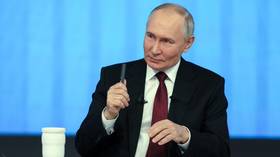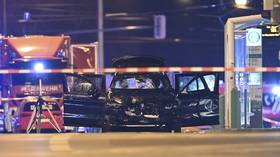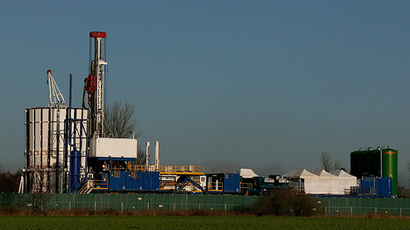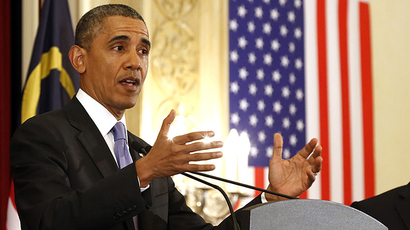G7 leaders talk Ukraine, economics without Putin at Brussels summit
The G7 leaders are in Brussels for a summit which, for the first time in 17 years, will be held without Russia. The sanctions toss-up between punishing Moscow over the Ukraine crisis and potentially ruining trade relations will top dominate the talks.
The event was originally planned take place in the Black Sea resort city of Sochi, in a G8 format including Russian leader Vladimir Putin, but the host was expelled from the Group of Eight over disagreement over the Ukraine and the political crisis there.
For the next two days, the leaders of Canada, France, Germany, Italy, Japan, the UK and the US will discuss economics, trade and energy security amid the ongoing revolt in Ukraine.
Energy ties with Russia are the issue of high importance for Europe, which gets almost a third of its oil and gas supplies from Russia.
On the eve of the summit, there have been speculations that G7 leaders will try to develop an energy strategy and potential diversify of gas and oil supplies as well as ways in which European economies can free themselves from dependence on Russia.
Further sanctions on Russia are also on the negotiations table as the US and EU remain insistent that Moscow is masterminding the uprising in the southeast of Ukraine.
Russia denies the accusations, saying that the post-coup Ukrainian government does not want to de-escalate the violence. Moscow has been calling on Kiev disarm radical nationalist groups and start negotiations with the protesters in the south-east of Ukraine instead of using force against its own people.
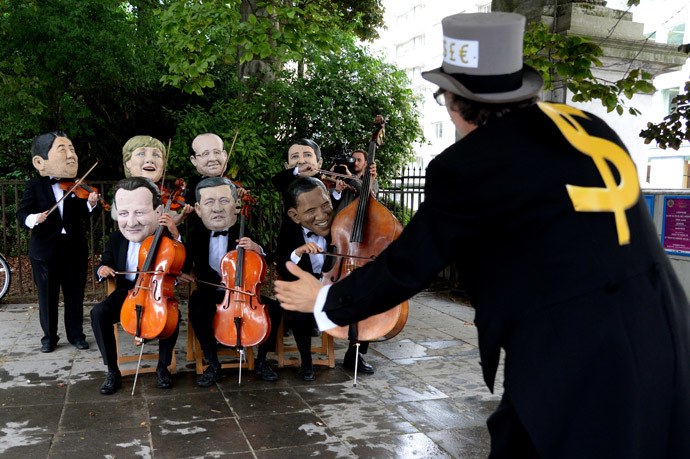
US wants more sanctions, but does EU?
But with two sets of sanctions already in place, there are fears that more restrictions, including some sectors of the Russian economy, may strike back the EU just as bad.
“The German government is not acting independently enough; they are just doing what the US says,” Hubert Aiwanger, leader of the Free Voters party has told RT. “Sanctions against Russia will have a negative effect on the German and the entire European economy.”
For Germany, for example, the risks are huge. Business leaders are anxious about almost half-a-million jobs that are directly linked to trade with Russia and the billions of euro tied up in those deals.
France is also under pressure with NATO urging it not to sell helicopter carriers to Russia.
On Tuesday, Poland's foreign minister also called on French President Hollande to cancel a 1.2-billion-euro ($1.66 billion) contract with Moscow.
“I don't think France would want to be in the position of supplying efficient weapons to an aggressor," Radoslaw Sikorski said.
However, following its partners’ calls may mean not pleasant consequences for France.
“If France doesn’t deliver the carriers then, it is surely going to cost them a lot of money, including fines for breaking the existing contract,” German MP Alexander Neu told RT.
Earlier the US admitted that it will not go ahead with economic sanctions without the EU also signing up to them, as US-only sanctions will not be “very effective.”
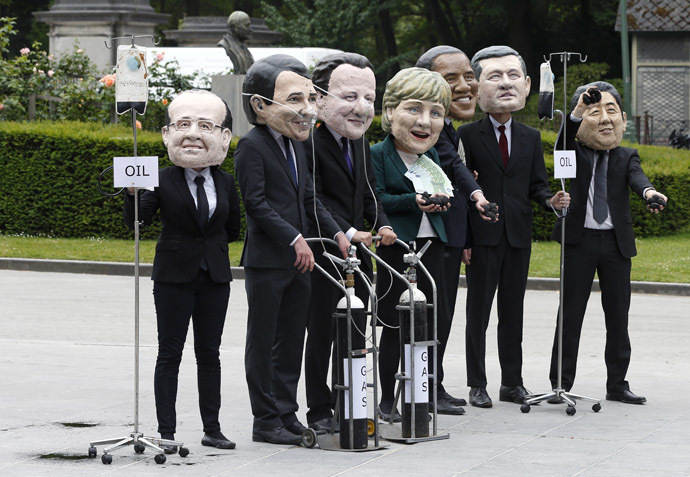
'Schoolboy tactics of the Obama administration'
The major economic discussions are planned for Thursday. Despite President Putin not being present at them, he will not stay away from the talks completely.
Vladimir Putin is set to hold one-on-one talks with French President Francois Hollande on Thursday, who had to schedule two dinners that day – with Putin and President Obama – in order to keep those two leaders apart.
Doing so, when discussing serious business, like Ukraine or NATO
extension, is “schoolboy tactics of the Obama
administration,” Asian Times correspondent Pepe Escobar told
RT.
“When we should be talking about serious business like
Ukraine extension of NATO, the BRICS and NATO as opposing camps
nowadays, this should be discussed at the presidential level in
the same room,” he said. On Friday, Putin is to meet
with German Chancellor Angela Merkel and Britain's David
Cameron on the sidelines of the 70th anniversary
commemorations of the D-Day landing in Normandy.








